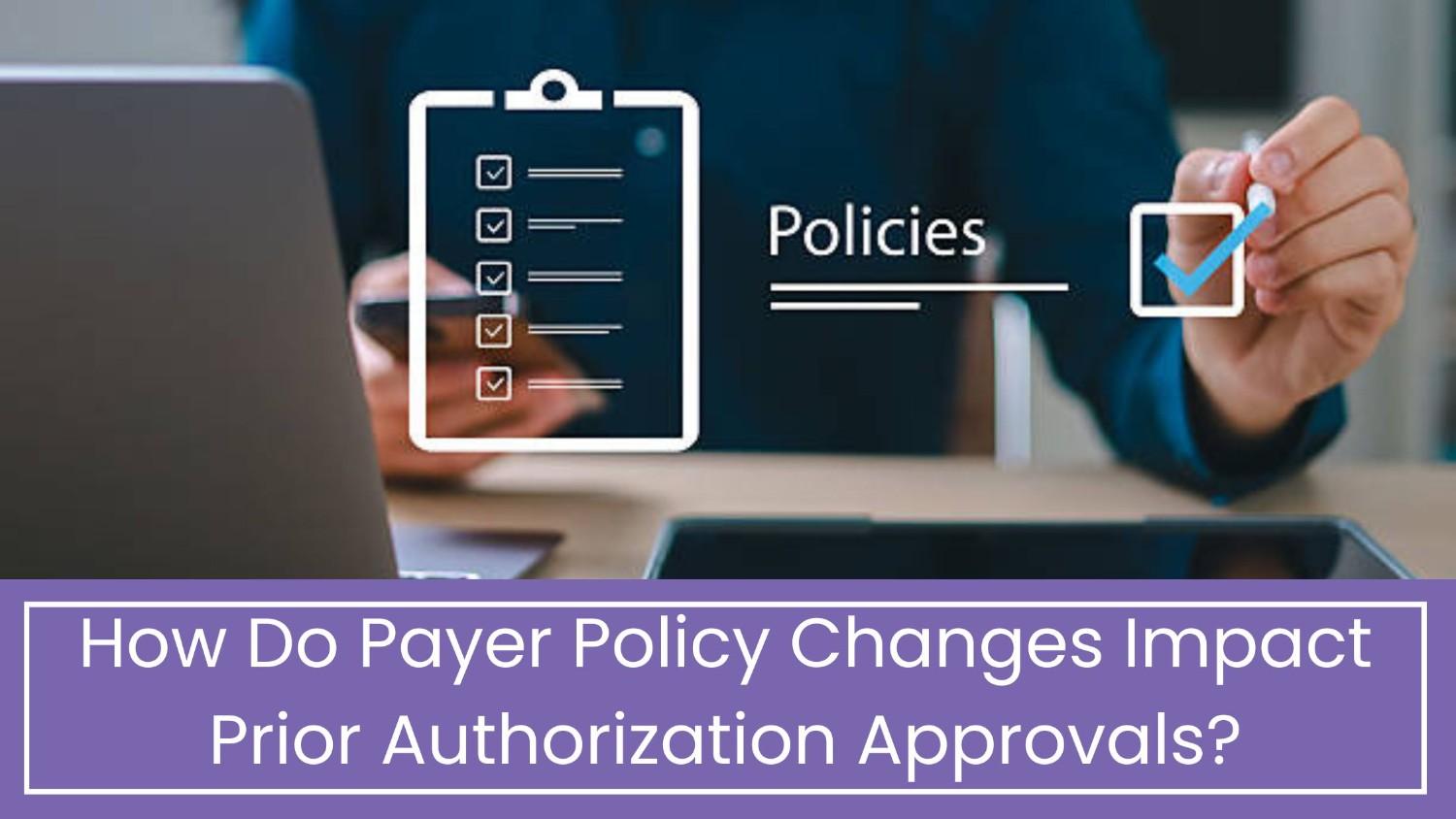Payer Policy Changes and Prior Authorization in 2025
Payer Policy Changes and Prior Authorization in 2025: Prior authorization will remain one of the most challenging issues in healthcare. Providers and patients see it as a source of delays and denials, while payers rely on it to control costs. Frequent changes in payer policies make approvals harder, leading to lost revenue and greater administrative burden. This blog explores the major trends for 2025, explains how shifting regulations affect prior authorization approvals, and shares best practices to stay ahead. Discover how providers can streamline workflows, reduce denial risks, and manage prior authorization more effectively with tools like Practolytics.
Table of Contents
How Do Payer Policy Changes Impact Prior Authorization Approvals?
Prior authorization (PA) is still a major issue in healthcare in 2025. Providers see it as a barrier. Payers view it as cost control. Patients face care delays.
Insurance regulations are subject to frequent, sometimes monthly, changes. This complicates PA every year. Providers must track these shifts to avoid denials. When policies update and practices lag, PA requests get rejected. The result? More work, longer waits, and financial pressure on everyone.
This blog covers three things: how payer changes impact PA approvals, key 2025 trends, and practical tools for providers to stay ahead.
Why Payer Policy Changes Matter
Insurance verification companies, or payors, frequently alter their coverage guidelines. These changes have significant effects on your company:
Prior Authorization Needs
- Services that didn’t need approval before might now require it.
- Drugs covered last year could suddenly need pre-approval.
- New procedures often get added to the PA list.
Documentation Demands
- Patients may ask for more clinical notes or lab reports.
- They might require specific medical billing codes.
Approval Timelines
- Some policies shorten PA submission deadlines.
- Others extend how long approvals stay valid.
Plan-Specific Rules
- Medicare, Medicaid, and commercial plans have different PA requirements.
- Even within one payer, employer plans differ from individual plans.
Miss these updates? You’ll face more denials and revenue loss. Stay current to keep claims flowing.
The Growing Impact of Policy Shifts in 2025
1. More Services Now Require Prior Approval
Doctors say prior approval often slows down patient care. Over 90% report this problem. In 2025, health insurers are adding more drugs and treatments to their approval lists to control costs.
2. Digital Submissions Become Standard
New rules require electronic prior approvals for some insurers by 2026. Many are moving to digital systems in 2025. Providers using only fax or phone face more claim denials.
3. Increased Scrutiny on High-Cost Drugs
Specialty drug costs are rising fast—U.S. spending may hit $420 billion by 2025. To manage this, insurers now require stronger proof before approving these drugs. They might ask patients to try cheaper options first or show more medical evidence.
4. Pressure for Faster Turnaround Times
Patients and doctors want quicker insurance decisions. Many states now require urgent requests to be answered in 2-3 days. If providers don’t submit the needed paperwork fast enough, claims get denied automatically. This pushes everyone to work smarter.
Real-World Example
A mid-sized Texas clinic saw more claim denials in early 2024. Why? Their insurance partner changed how they approve MRI scans. Now, they required proof that physical therapy didn’t work first. The clinic missed this update. So, 35% of their MRI requests got denied in Q1.
They fixed it fast:
- Updated their system to catch rule changes
- Trained staff on new requirements
Result? Approval rates jumped 40% in just 3 months.
Simple lesson: Track insurer updates closely to avoid revenue leaks.
Key Challenges Providers Face
Keeping Up with Changes
Payers change rules without clear notice. Providers often find out only after claims get denied.
Too Much Paperwork
Providers need to submit more and more data: diagnosis codes, past treatments, lab reports, and other details.
Time-Consuming Tasks
Staff spend hours getting approvals instead of caring for patients.
Cash Flow Problems
Denials delay payments. Fixing each claim takes weeks, hurting your money flow.
Best Practices to Handle Policy Changes
1. Automate Policy Tracking
Use simple tools to watch payer updates. Get alerts when rules change. This stops missed deadlines.
2. Create Standard Checklists
Make clear lists for each payer and service type. Confirm all details are included before sending claims.
3. Train Your Team Monthly
Hold short, regular sessions on payer updates. Keep everyone current on requirements.
4. Track Denial Patterns
Spot which payers or services cause rejections. Use this insight to fix workflow gaps.
5. Check Coverage Instantly
Use integrated tools to verify insurance and approvals during scheduling. Avoid surprises before visits.
Trends and Updates in 2025
AI in healthcare Prior Authorization services: By utilizing historical data, AI tools are now able to predict approval chances. Staff can construct stronger cases more quickly as a result. CMS Interoperability Guidelines: Medicare Advantage, Medicaid, and certain private plans will have to manage electronic prior authorizations by 2026. Ahead of the curve will be early adopters.
Advocate for Transparency: Patients want to know up front what requires approval and how long it will take. Trust is developed by providers who are transparent about this.
Payers and Providers Working Together: A few insurance companies are experimenting with “gold carding” schemes. Authorization barriers are lower for providers with a solid approval history.
Common Pitfalls to Avoid
- Submitting incomplete documentation
- Relying only on manual checks
- Using outdated payer rules
- Not explaining PA delays clearly to patients.
- Skipping denial audits
Conclusion: Stay Ahead with Practolytics
Payer policy changes in 2025 are changing how prior authorization works. For your practice, missing these updates means more claim denials, more admin time, and slower payments. It results in care delays for patients.
You need smart tools and tried-and-true strategies to stay ahead. Practolytics can help with that.
With Practolytics, you can:
- Automate prior authorization checks and tracking
- Get alerts when payer policies change
- Reduce denials with accurate paperwork
- Speed up approvals and payments
- Share clear cost and approval details with patients
Healthcare is already complex. Prior authorization is made easier, quicker, and more dependable with Practolytics, allowing your team to spend more time with patients and less time filling out paperwork.
Increase your income in 2025. Choose Practolytics for smoother prior authorizations and stronger finances.
Read More – Prior Authorization Services for Podiatry : improving Patient Access and Care
Talk to Medical Billing Expert Today — Get a Free Demo Now!






